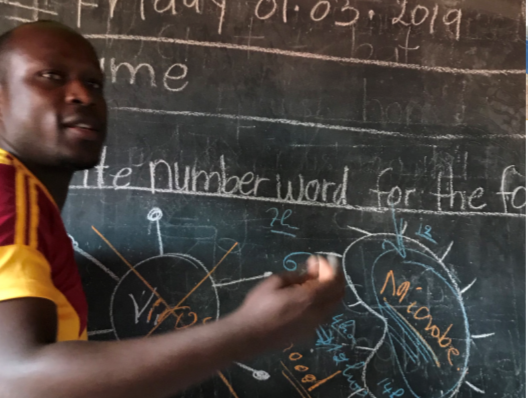Design thinking, a world-leading archive, and cross-disciplinary collaboration are inspiring public health communication in the UK and Africa. Professor Sue Walker has led a team of design, architecture, and pharmacy researchers and practitioners to bring the issues of antimicrobial resistance to life in a pharmacy setting.
Antimicrobial resistance (AMR) is a serious threat to global public health. Everyone can take action to reduce its spread, and the community pharmacy provides an ideal space to persuade people to get involved.
In a project led by Professor Sue Walker from the Department of Typography &Graphic Communication, cross-disciplinary teams worked in ‘Ideas Labs’ with pharmacists and pharmacy users to develop innovative designs to inform people about AMR and to influence behaviour change. 1930s posters about tuberculosis, from the Otto and Marie Neurath Isotype collection, stimulated people-centred thinking.
Concepts included a group of ‘Persuaders’ – life-size cartoon figures, each with a story to tell – an ‘antibiotic checklist’ and ‘knitted bacteria’. The team installed prototypes in a Day Lewis pharmacy in Reading and gathered feedback from pharmacy users.
In Rwanda, in association with the Rwanda Community Pharmacists Union and the Commonwealth Pharmacy Association, the team worked with pharmacists, pharmacy students, and patients to explore how people access antibiotics and to produce new information materials in English and Kinyarwanda. At a second workshop participants used role-play to explore reactions to the information materials in pharmacy settings. And in a village primary school, teachers, children and village elders provided their feedback on an ‘antibiotic record card’.
These innovative collaborations have spawned new ideas and developments and are proving the value of good design in public health communication.
Partners: Day Lewis Pharmacy, Design Science, Rwanda Community Pharmacists Union, University of Rwanda
Funders: Arts and Humanities Research Council, Global Challenges Research Fund
Judges’ comment: “This is a truly multidisciplinary collaboration that has sparked the imagination of a wide range of professionals both within and outside the University, reaching as far as Rwanda.”
Shortlisted for the University Research Engagement and Impact Awards 2019
First published: June 2019

